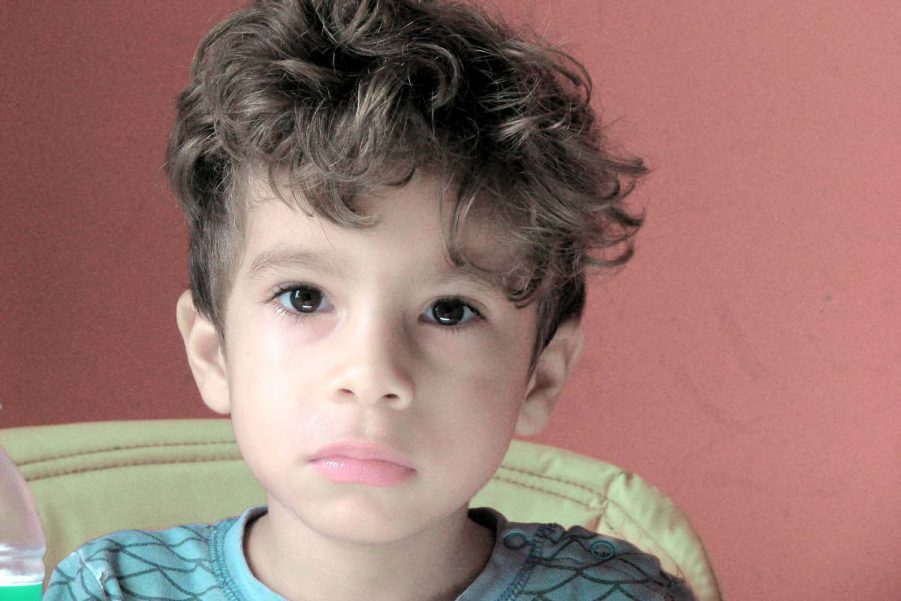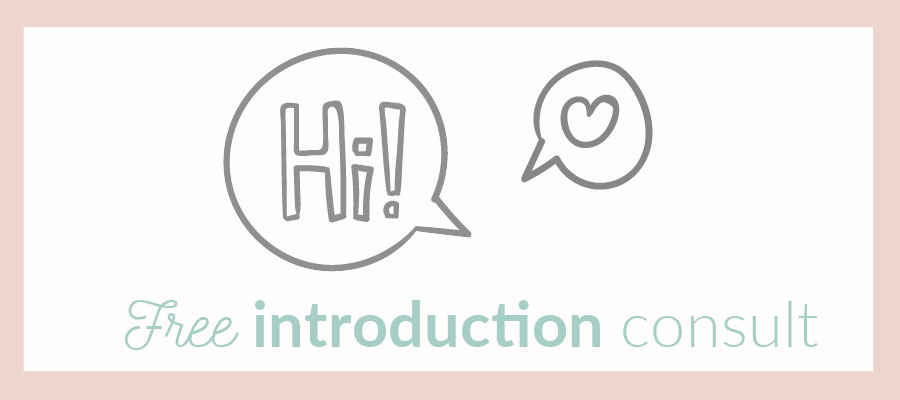Many parents struggle with dinner time. In this video we’ll see an example of such a struggle and how The Nanny deals with this.
My Appreciation
At the start of this video, we see the disconnection that happens in so many families around dinner time. We see mom and dad are in despair, as well as the children who are crying above their plates. An image which is so familiar to many of us. We have all been there at some point in our parenting journey. Some of us find themselves every day in this place of frustration and disconnection at the dinner table. So I want you to know that my heart goes out to you and your children, if you find yourself struggling over dinner time and loosing the connection with yourself and your children, when all you are longing for is a peaceful mealtime. I’m sending you lots of compassion when you see this video and recognise the struggle and the pain.
And even though I think there are other methods that can be used instead of the methods that The Nanny uses, I want to take a moment to acknowledge that her intentions come from her beautiful need to help these families struggle less, help children eat healthy and that she really makes in her own ways an effort to bring peace to the dinner table.
Also, I really appreciate that shows like The Nanny acknowledge how hard parenting can be sometimes. That for many of us, it is not all roses and rainbows. Shows like The Nanny opened up the way to conversation about these struggles. And I imagine it takes a lot of courage of the parents in these shows, to show their private struggles to the outside world. They are opening up their private family’s life, with the risk of receiving criticism and judgement from others. And I really appreciate that by doing so, they show other parents that they are not alone in their day-to-day struggle in parenting.
So maybe you recognise the struggle. Or you find yourself using some of these methods that are shown in this video. If so, I really want to invite you to not hit yourself on the head for it! I know how tough it sometimes can get in parenting and we do not always have other tools available to deal with the situation. At the same time, that’s exactly the reason why I’m so passionate about helping parents find other tools and experts, that aim to help parents find back the connection and joy with their children.
That said, before you read my commentary on this video, I invite you to watch the video below and hold yourself gently when you feel triggered by what you see. After that, please feel free to read my commentary underneath if you are curious about finding other ways to get out of the struggle around dinnertime!
In our despair, we sometimes do things we later regret. We all have felt so lost at times, that we resorted to tactics that try to control our children and get the peace, that we so desperately crave for. Like the mom in this video, who I imagine feels so powerless! My heart goes out to her. I imagine she feels so desperate, that in her last resort, she tries to grab back control over the situation and orders her children to stop crying and start eating. So she says: “Stop the complaining before you are going to time-out!”. It seems that dinnertime has become a big powerstruggle between these parents and their children.
Assessing the situation
The Nanny confirms this power-struggle and says: “Eden has gotten an enormous control over her parents.” So like the mother, The Nanny too sees dinnertime as a matter of who is having control over who. In other words, she sees dinnertime as a power-struggle. My take on this is a bit different. I think that if we start from this premise (that dinner IS indeed a powerstruggle), we have only one choice: to win and let the other one loose. When we see dinner as a power-struggle, we can only go into war to win, to get control or power ‘back’. And we all know that in war, there is no space for understanding and connection. The one with the biggest guns wins. And that’s what I think we see happening in this video: The Nanny starts offering parents “guns” to “win” this battle.
So the difference in how I see things, lies in the assessment of the situation: our perception of the situation. So the first step to me is becoming aware of how we are perceiving this situation: can we see that we feel powerless? Can we see that because of this, we are perceiving dinnertime as a battle of powers in which we must win our power back?
Can we shift our perspective on dinnertime? There is a saying that might help us to shift our perspective: “our children are not giving us a hard time, but they are having a hard time.” When we start looking at the situation like this, we can step away from the power-struggle. And often it is not only our children that are having a hard time at the dinner-table, but also us parents. This way we can shift our focus from seeing it as a power-struggle, to seeing it as about attending the needs of (big and little) people who are having a hard time and can not find a peaceful situation with each other.
Going into war
But in the video, the premisse is that there’s a power-struggle that needs to be won. The Nanny tells the mom: “So I want you to make clear to them, we do not want this nonsense anymore. Simple as that.” And this might resonate with us, because we all want to get out of the struggle! Indeed, “We do not want this anymore!” We all want to have peaceful happy family dinners, full of laughter and connection!
Yet, when The Nanny judges the behaviour of the kids as “nonsense”, it leaves little space for understanding WHY this behaviour happens and where it comes from. The only thing that she says about it in this video, is that it is nonsense: unwanted behaviour that needs to stop. So the focus of this method is aimed at the result, not the cause; to stop the unwanted dinner-table behaviour and to enforce the wanted eating behaviour. My take is a bit different and instead of only focussing at the symptoms and the result, I prefer to look at the root cause of the eating behaviour and to address that. This way, we do not need to enforce behaviour, but we can respond to the children’s and our own needs.
Being in war
As I said in the beginning, the premisse that it IS indeed a struggle, will make us move into a war where the most powerful one (the parent) wins. This also becomes clear when The Nanny says: “They refused to listen to mom and she really had to stick to her guns.”. It indeed becomes (or stays) a power-struggle, a “war”.
So what is the “gun” in this war? The Nanny continues: “Lay down the rules, tell these kids what is expected and then leave them.” The gun (or threat) is to break the connection with our kids and leave them up to their own devices. The gun is using DISCONNECTION (or withdrawal of love) to ‘regain’ parental power. This gun, disconnection, then has to force the children to show the wanted behaviour. In other words The Nanny is saying; ‘you won’t get connection (love), until you eat.’
The reason that the use of this “gun of disconnection” (or withdrawal of love) is so powerful, is because connection (or love) is a VITAL need of our children. Research from Harlow with monkeys has shown that connection (or love) is for infants even MORE IMPORTANT than food! In fact, it’s a vital need for all of us.The fact that connection is vital for us humans, also speaks from this little video about addiction.
Would you like to receive my Free Book Guide? Free Bookguide
12 tips + explanation
for almost all parenting struggleswithout time-outs, rewards or sleeptraining
Would you like to receive free tips & updates by email?
Then fill in your email!
What do we teach our children?
I wonder if we really want to use love and connection as guns? Do we want to teach our children that love and connection are guns that can be traded to get something done from others? Do we want to teach that we receive connection, love and appreciation, when we please others? Also, I imagine we do not want to trade love for food. Food and love is something we as adults struggle with separating, when we are trying to find comfort in food whenever we feel “bad”. Besides that, I wonder if we want to show that dinner isn’t fun, but is a power-struggle?
What happens to the mom?
I think this also resonates somehow with the mom in the video. She seems to feel some resistance to these methods, at some point. The Nanny then tells her: “You are not hurting your kids, you are just asking them to try”. The Nanny continues: “She (the mom) was definitely torn between ‘ok up from the table’ and sticking to her words.” So the mom felt torn. The Nanny then uses the same method for the mom, as she uses for the kids. She advices the mom to disconnect from her own feelings and focus on showing the wanted behaviour for her as a mom: she wants the mom to stick to her words. The Nanny tells the mom WHAT to do, but not HOW to get there.
But is it hurtful?
Maybe this one instance or if it happens sometimes, it might not be so hurtful to the kids. Only when we use it as a structural method, it can slowly erode our connection with our children over time and break trust. This erosion of our relationship, actually takes away our natural power, according to developmental psychologist Dr. Gordon Neufeld.
He says that the way we keep our power is by building a strong relationship with our children. So I imagine we want to make little day-to-day connections to build a good relationship over time; instead of making little disconnections to break the relationship over time and loose our parental power little by little. So why not offer parents tools that help build that connection?
Does The Nanny work?
Like I said above, children have a vital need for connection. Just like us adults, they do not like loneliness and rejection. Many of them will do anything to receive connection, love and appreciation and stop the isolation. So in the next scene of the video we see that the son has taken a bite. He shows the wanted behaviour and he gets his connection; to hug his mother. The lesson has “succeeded”.
On the other side, we see that the girl has not eaten yet. She is crying while she looks at her brother who is being hugged. Maybe she feels a deep despair and loneliness of being isolated from connection and love? I think it takes a very strong child, to not give up hope to be heard. The girl finally falls asleep above her plate.
The bazooka
When I thought they would put the girl gently into her bed, The Nanny decides: “It’s time to go to bed. The boys can stay up playing, the girl doesn’t have that privilege tonight.” So when the ‘little gun of disconnection’ does not work, The Nanny then advices to take out the ‘bazooka of disconnection’; take away more of the connection and love, by isolating the girl in her room.
The Nanny also adds some extra ‘ammunition’, by not letting the girl play. To me this seems counterproductive, because Play is an important life-tool for kids to find inner-balance and inner-peace! Children can process events and emotions through play! By taking away play, you’ve taken away one of their most important tools to deal with their emotions in a healthy way.
The Nanny then says: “She has to see that it’s not about falling asleep and then getting away with it.” So The Nanny seems to assume that the girl is opposing her parents, who are on the other side of the battle. So again The Nanny seems to make the premise that this IS indeed a battle between parents and children and only the one with the biggest ‘gun’ and persistence can win. Again, I believe that when we keep seeing the situation as a battle or power-struggle, we keep ourselves in a war.
The Nanny stresses that there must be no escape possible for this girl: “she has to see that it’s not about (..) getting away with it”. Thus the aim seems to be to take away the power of this little girl over her own body, make her feel ultimately powerless, so she will give in and eat. Like the mom says in the end: “I definitely think Eden was trying to control. And she lost. She knows she is not going to win.” So again, yes: in a battle, one looses, the other one ‘wins’.
What I’d add
My heart goes out to this family, the mom and the children. I really appreciate their courage to show their struggle on public tv. And I really appreciate the effort of The Nanny to help them and open up the conversation about parenting. Yet, I can’t help but wonder if the tactics of The Nanny are really worth it to make our children eat. Especially since I know there are other ways, that help us step away from the struggle. Tools that can bring back the connection and laughter. Tools and insights that can help us relax over dinner. (And it does not mean there are no limits!).
So my take is to offer tools that help the mom AND the child both feel powerful, so they both win and both can feel stronger and happier. I prefer tools that build connection, instead of tools that are taking it away.
Besides that, like I said, the focus of this method is on the outcome, the result: the wanted behaviour of eating. I prefer to start with the cause of why this behaviour happens and where it comes from. To deal with the root cause, not just the symptoms.
I also see parents and children who are left to their own devices to figure out how to deal with their own strong emotions; they are only told WHAT to do, but not HOW to do it. But the children do not have the brain capacity and tools yet, to process their emotions in an adult matter. They are left to figure out themselves in isolation, without guidance, how to calm down. What I’d therefor like to add is guidance / coaching of the children and the parents in processing their big feelings, so parents and children can come to a place of inner peace and joy again.
Where to start?
That said, if you feel it works for you and it take the struggle out, then please do whatever works for you. On the other hand, if you are tired of being a police officer at the dinnertable and if you are curious about finding other kinds of ways to deal with dinnertime, then know that there are other ways where there is space for your frustration, as well as the frustration of your children. That there are ways, without making this into a war where only one party can win. Ways without ‘guns’.
If you want to read more about these other ways and hear what other experts have to say, then please feel free to download my parenting bookguide for FREE in DUTCH or ENGLISH. It contains 12 brilliant book-titles of known authors and for each book there’s a little overview what the book can be used for. These books can help you learn all about these peaceful methods, that can restore the connection and joy in your family’s home. Even if you have a small budget, you can find some of these books in libraries and other books second hand for a little of the original price!
More support
If you feel the book-guide isn’t enough for you and you prefer more personal or group support: there are many brilliant parenting courses and coaches that want to bring back the connection in your family’s home. If you do not want to work with me, please feel free to e-mail me to receive names of others. And if you do want to work with me, know that I also prefer to offer tools and methods, without guns, in my online courses, workshops and private consults with parents; to help bring back the connection and laughter in your family.
I have my own personal way of working because I use tools and models from a diverse background, a mix of Psychology, Non-Violent Communication, Aware Parenting, Unconditional Parenting, Attachment Parenting, Democratic Parenting, Yoga, Meditation and Transactional Analysis. Tools that aim at helping parents trust their intuition and build a stronger relationship with their children AND with themselves.
Because.. Let’s face it.. Parenting is hard. And already often enough, we find ourselves in a place of disconnection with ourselves and our children. So why make it harder and make the disconnection stronger? Let’s give each other a warm shoulder, loving support and the tools to rebuild that connection with ourselves AND our children!
About the author: Hi! My name is Chris Muller, MSc, BTA. I am a psychologist, counselor in Transactional Analysis, Aware Parenting instructor (level 2) regional coordinator the Netherlands and mother. For 10 years I provide support to parents through training, the Aware Parenting Education and 1-on-1 guidance. With a lot of love I help you to treat children AND yourself with love and respect. It is my passion that you experience more joy and more connection with your child AND with yourself! X
Do you want parenting support?
Would you like to receive my Free Book Guide? Free Bookguide
12 tips + explanation
for almost all parenting struggleswithout time-outs, rewards or sleeptraining
Would you like to receive free tips & updates by email?
Then fill in your email!


